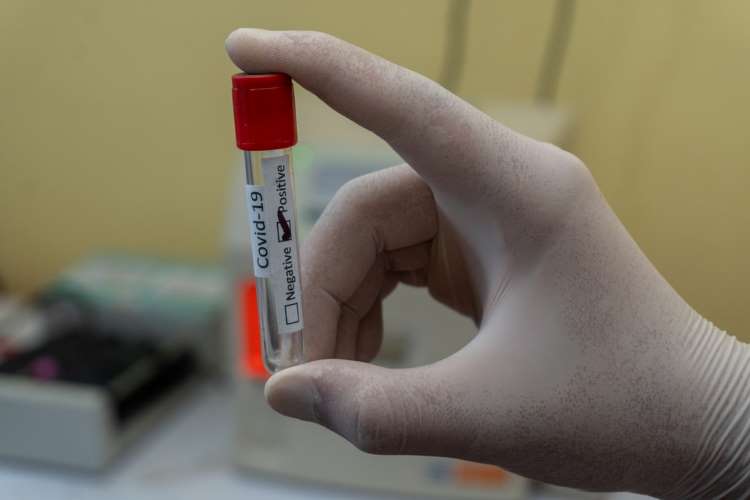The world rejoiced when vaccines for Covid-19 were rolled out one after the other. They entered the global market, bringing waves of cheer to the entire world. Everyone thought the end of the deadly coronavirus is here and hoped that the pandemic will be tamed in another six months. It turns out that all of us were wrong by a mile.
The world assumed that the bug is as static as a deck of cards and will succumb to the array of vaccines in a flash. The armour was good enough, but there were gaps in the metal. And those were more than enough for the nasty bug to make a comeback. A camouflaged one that can still cheat the human immune system. Scientists were sure that the bug will mutate and be less susceptible to early vaccines. And they were spot on. It unfolded like a well-written movie script. And a little bit scarier than they initially thought.
Of all the new mutant strains out there, the spotlight is on the big three — the B 1.1.7 (UK variant), B1.351 (South African Variant) and the P.1 (Brazilian variant). The trio gives the maximum trouble for global public health forces and vaccine researchers.
READ I Blow to naysayers: Covid-19 vaccines just got a CDC booster shot
Covid-19 variants to the fore
Among the three, the UK strain is the most widespread one as of now. The latest data shows that this strain is a double-edged sword. It is 60% more infectious and 67% more deadly compared with the conventional strains. The strain spreads just like the other ones. The only difference is in the lodging strategy of the bug. Infected people carry more virus and they remain infective for a longer time. Worse, it kills more people as well. The only glimmer of hope is that this variant is not a vaccine crusher — the lead vaccines are effective against the UK strain. That’s what the data says.
The story about the remaining two super star mutants — the one from South Africa and the one from Brazil — are different. These two are effectively vaccine crushers. The existing vaccines are effective, but the efficacy is pretty low. The worry comes from the presence of a critical mutation called E484K. Both the South African strain as well as the Brazilian strain carry this worrying mutation. This mutation may help the virus evade parts of the immune system called antibodies that can fight coronavirus based on the experience from prior infection or a vaccine.
READ I Agrarian crisis: FPOs is the way out for Indian farmers
Both Pfizer and Moderna vaccines are less effective against strains with E484K mutation. Other ones including Oxford, J&J and Novavax were even worse in comparison. All these vaccine makers are busy coming up with a tweaked version that can tackle this mutation. The endgame for Covid-19 clearly depends on how well the vaccines tackle this particular mutation.
The South African version is twice as infectious compared with the conventional variant and more deadly as well. It is notorious for reinfecting people who were infected earlier. Projected reinfection rates are 30-60%. Looks like one game is not enough for the bug when it comes to the Brazilian strain.
Brazil made matters worse by its callous attitude towards the pandemic. Led by a President who defied all scientific logic, the country had nowhere else to go but to become the natural laboratory for Covid-19 mutations. The more you let the bug roam free, the more are the chances of the bug coming back with a surprise mutation. P.1 is just one among the many worrisome mutations reported from Brazil. The researchers are hinting that there is a lot more bad news out there.
READ I Election manifestoes: An 18-point agenda to make India great
India must speed up Covid-19 vaccination drive
The Covid-19 game is now being fought between the vaccines and the variants. There is no doubt that the vaccines will win in the end. But how quickly and at what cost are the questions for the day.
The globe is vaccinating at top speed. Big countries like India are lagging behind with less than 5% coverage as of today. The second wave is just unfolding for the country and will be tougher than the first one for sure. The country had more than 100,000 new cases on April 4, breaching the record levels seen during the first wave. The second wave is also spreading faster than the first. While the first coming of Covid-19 took 61 days to peak at 55,000 daily cases in August, the second wave just needed 41 days to touch 60,000.
India’s vaccination drive needs to cover a third of its population to have a serious grip on the situation. Till it’s over, get your shots and trust your mask and the soap. And continue with social distancing for some more time. That is our helmet and seat belt bundled into one. There is no other option. Rock it at your own risk, or just stay safe.
(Dr Manu Raj is a paediatrician, clinical researcher and research methodologist based in Kochi. Views are personal.)

